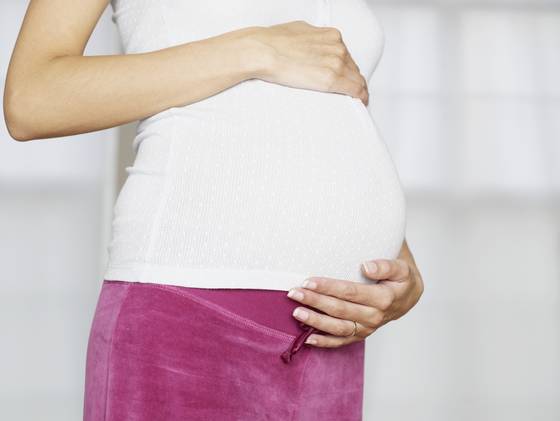With commercial sperm banking giving women more opportunities to become mothers, a world-first QUT study has found the age and education of sperm donors are the most important characteristics considered.
Tag: education
Infertility: Causes, Remedies and Options
Baby-making seems easy. There is a lot of education, even anxiety, around preventing unwanted pregnancy once we become sexually active. But many couples dealing with infertility would dispute the notion that getting pregnant is as simple as shelving birth control. Dr. Jamie Grifo, program director for NYU’s Fertility Center, sees struggling couples in his clinic every day.
How Adoptive Families Can Prepare for National Adoption Month
By Kathy Brodsky, L.C.S.W.
November is National Adoption Month and celebrates adoption, adoptees, birth and adoptive families. There are national education campaigns, governmental advocacy efforts and state Adoption Days, all focused on …
It May Be ‘Perfectly Normal’, But It’s Also Frequently Banned
Banned Books Week kicks off Sunday: Each year, the American Library Association takes this week to sponsor events all over the country to talk about the books that shock, offend and generally make Americans uncomfortable. That’s how a sex education book for children, titled It’s Perfectly Normal, became one of the most banned books of the past two decades. The book is meant to teach children 10 and older about sexual health, emotional health and relationships, and contains sections on puberty, pregnancy and sexual orientation.
Tackling Teen Pregnancy
American birth rates are lower than ever—unless you’re in Texas. Amanda Marcotte runs down what works (free condoms) and what doesn’t (abstinence-only education) when it comes to preventing teen pregnancies.
Ignorance About Sex Leads to Infertility
Gynecologists in city are recording a disturbing trend — despite all the education and exposure to mass media and even sex education in schools, young couples are increasingly showing lack of enthusiasm and ignorance about sex due to either stress or modern lifestyle, which in turn is leading to rise in infertility.
Omega-3s May Lead to Healthier Babies
Pregnant women who took daily supplements of DHA, a type of omega-3 fatty acid, had longer gestations, bigger babies and fewer early preterm births, according to a new clinical trial.
In the double-blinded study, published online in The American Journal of Clinical Nutrition, researchers randomly assigned 154 healthy women to take 600 milligrams of DHA during the last half of pregnancy and 147 to take a placebo.
After adjusting for maternal education, socioeconomic status, prior pregnancy, smoking and other risk factors, they found that babies whose mothers took supplements were almost a half pound heavier than those of the mothers who took none, and they were slightly longer with larger head circumferences.
Almost 5 percent of mothers who took the placebo gave birth at 34 weeks’ gestation or less, compared with only 0.6 percent of the mothers who took DHA. Read full article.
Nation’s First Sex-Ed Standardized Testing Shows Students’ Gaps
The District of Columbia has released results for the nation’s first-ever standardized test that includes sex-education, showing that fifth- and eighth-graders have a lot to learn about their bodies.
The test, known as the 2012 District of Columbia Comprehensive Assessment System (DC CAS), was administered to fifth-graders, eighth-graders and high school students throughout the city. Results were posted today, and show that even though students answered an average of 62 percent of questions correctly, they have work to do.
“The results that we received will be very helpful in determining the improvements needed to be made for teacher professional development training and create challenging material that can further student’s interest and knowledge in personal health,” Ayan Islam, communications specialist for the Office of the State Superintendent of Education, told ABC News.
Islam says the test is part of landmark state legislation passed in 2010, requiring agencies to provide more in-depth reporting and engagement of various community stakeholders with different interests.
More than 11,000 students from fifth-grade through high school were enrolled in health courses and then selected to take the 50-question exam in April. The exam measured students’ knowledge in health-related categories, including wellness, disease prevention, physical education and healthy decision-making. Read full article.
Schools failing to teach pupils about infertility
Why doesn’t sex education cover infertility, when five children in every class are likely to experience it?
For a group of teenagers, Lauren, Fazana, Flora and Mackenzie are remarkably knowledgeable about fertility. Sitting in the library at St Marylebone school in central London, they’re explaining what they’ve learned. These year 10 girls know how common infertility is, how female fertility declines with age and they understand that IVF doesn’t always work. The discussion ranges from egg donation and surrogacy through to the dilemmas they know they may face later in life trying to balance careers with the desire for a family; “There’s never a time that’s exactly the right time to have a baby,” they explain.
It’s something every girl at St Marylebone will cover in their religious studies lessons, where the curriculum covers religious attitudes to family, relationships and family planning, as well as the ethics of fertility treatments. But in some other schools this highly topical issue barely gets a mention. IVF may be covered as a technological advance in science, but infertility isn’t part of the sex education curriculum, where the focus is on preventing pregnancy and sexually transmitted infections. This may seem sensible when dealing with young people, but the reality is that pupils are far more likely to have a fertility problem in the future than they are to get pregnant while they’re still at school. The teenage pregnancy rates for England and Wales are the lowest they’ve been since the 1960s, but infertility rates are rising; one in six of the population will experience problems getting pregnant – that’s about five pupils in each class of 30.
